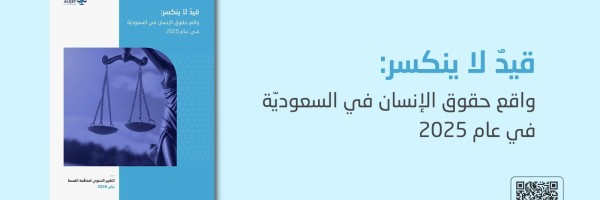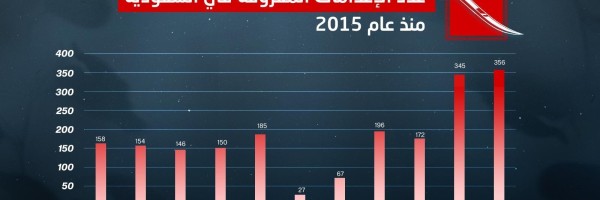ALQST condemns the new death sentence handed down against Saudi youth Abdullah al-Huwaiti for offences allegedly committed when he was only 14, which destroys the Saudi authorities’ claim to have discontinued use of the death penalty for minors.
On 2 March 2022, the Criminal Court in Tabuk sentenced al-Huwaiti to death on the basis of qisas (requital, a form of retributive justice). In November 2021, the Supreme Court had overturned a previous death sentence handed down to al-Huwaiti by the Tabuk Criminal Court, in November 2019, that time on the basis of hadd al-hiraba (one of a number of hudud offences, specific crimes that carry prescribed penalties in Islamic law, as interpreted by a judge). The alleged offences, of murder and armed robbery, took place when al-Huwaiti was only 14 years old, and the court proceedings against him were marred by numerous violations of international fair trial guarantees, including relying on confessions allegedly extracted under torture.
Amid international criticism of their dismal human rights record, the Saudi authorities have tried to improve their image by announcing some reforms in recent years, but these have generally fallen far short of the changes needed. In 2020, the authorities purportedly issued a decree ending judges’ discretion to apply the death penalty to minors, yet it contained various loopholes by which minors can still be executed. Significantly, it explicitly exempted death sentences imposed on the basis of hudud or qisas, as in al-Huwaiti’s case. It also exempted cases brought under the Counter-Terrorism Law, under which Saudi youth Mustafa Hashem al-Darwish was executed on 15 June 2021, for offences that occurred when he may have been only 17.
Despite these loopholes, Saudi Arabia’s official Human Rights Commission (HRC) later insisted that “no one in Saudi Arabia will be executed for a crime committed as a minor”. A limited number of death sentences for minors have now been commuted, including those issued against Ali al-Nimr, Dawoud al-Marhoun and Abdullah al-Zaher, but the 2021 execution of al-Darwish, the latest sentence against al-Huwaiti, and the fact that other individuals remain at risk of execution for crimes allegedly committed when they were minors seriously undermines the authorities’ and HRC’s claims.
ALQST calls on the Saudi authorities to review Abdullah al-Huwaiti's trial, investigate the violations of his rights while in detention, and quash the death sentence passed on him. Furthermore, ALQST calls on the Saudi authorities to establish a moratorium on use of the death penalty with the aim of working towards its abolition.




